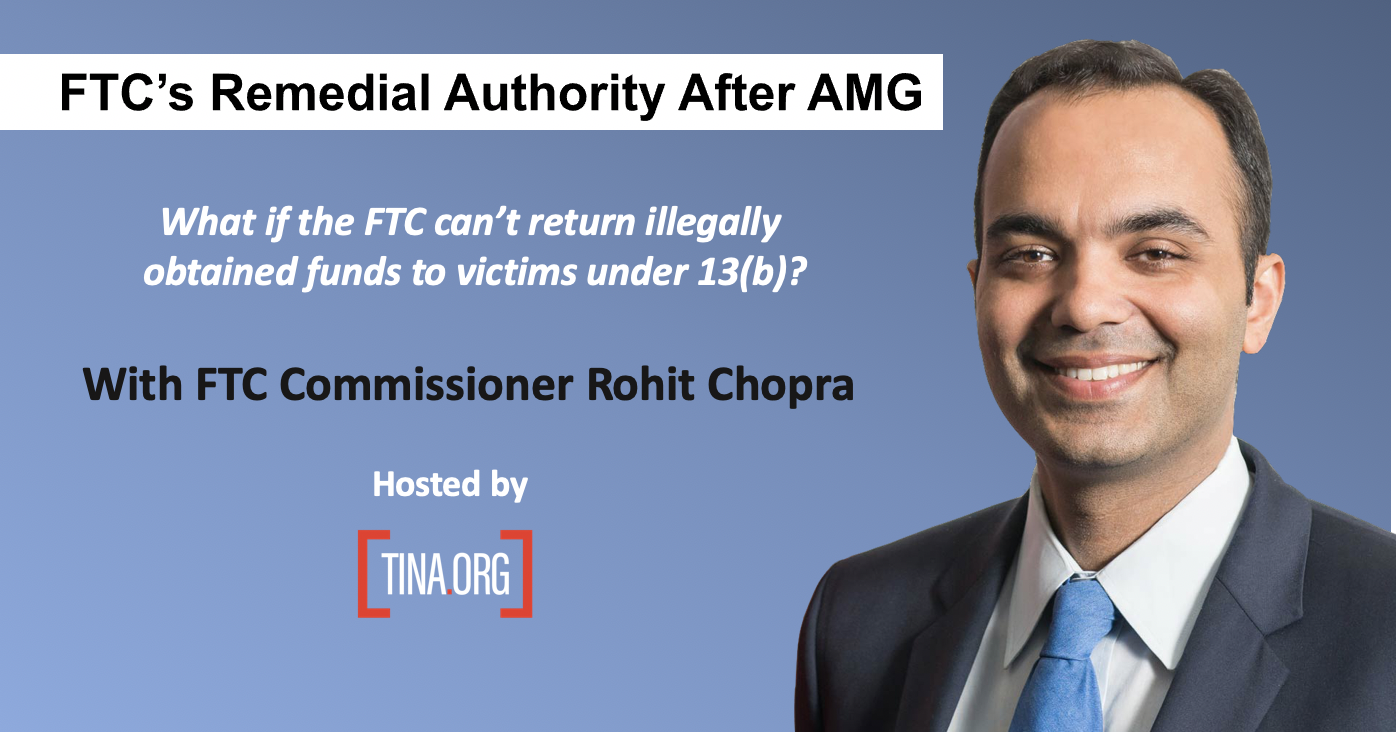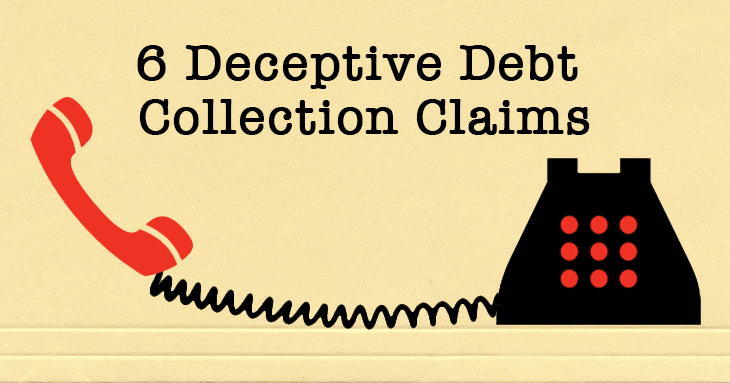
TINA.org Webinar: FTC’s Remedial Authority After AMG
In case you missed it, watch the webinar with FTC Commissioner Rohit Chopra.

An American Success Story
Between 1990 and 2008, Spectacularly-successful financial services company whose business model was based on selling mortgages to families that couldn’t afford them, then selling those worthless mortgage instruments into the financial markets, eventually helping to undermine the soundness of the American economy. Ironically, the company advertised widely on TV with the slogan, ‘Proud sponsor of the American dream.’ was one of the most successful, lucrative business operations in the United States – an enormous success story. The loans that the company originated during that time made the dream of home ownership possible for millions of Americans. At one point, Ameriquest was one of America’s 500 fastest-growing companies, had a major league ballpark named after it, and sponsored tours by The Rolling Stones.
The Dream Becomes a Nightmare
Unfortunately, an enormous percentage of the loans Ameriquest originated were made to people who simply could not afford them. The loans the company sold were usually supported by fraudulent documentation produced by the company itself. We know now that the company – among others within the mortgage industry – was also systematically pursuing elderly widows on fixed incomes in Southern California.
Doesn’t this Sound Like Bad Business?
What would motivate an established, successful company to engage in such practices? Turns out, the hefty fees that Ameriquest loan officers could charge upon origination were set as a percentage of the mortgage. So the larger the loan, the larger the earnings being generated by Ameriquest – and the larger the compensation total of the Ameriquest salesperson, who was getting paid on commission.
Ameriquest didn’t care how worthless or dangerous these loans were or how the loans performed (i.e., whether customers actually paid them back in a timely way) because they didn’t own them long enough to care. The company would bundle these mortgages together shortly after they were originated and sell them to investors on Wall Street.
The Grand Finale
The tale ends with Ameriquest’s business activities, along with those of countless other mortgage companies (and more than a few securities firms and ratings agencies), creating an implosion in the United States housing market that devastated national and global economies – leaving a landscape that persists to this day.
For all its Liberty Bell imagery and extraordinary financial success, Ameriquest was methodically selling fraudulent loans to people who couldn’t afford them. That was its business model until it shut its doors in 2008.
The Moral of the Story
The lesson here is a sobering one. Just because a company is considered reputable, successful, and has hundreds of millions of dollars – per year – to spend on advertising (the company spent $365 million on advertising in 2003 – well before the peak of the subprime market), doesn’t mean that they are a suitable financial partner for you or anyone else.
You have to rely on your own judgment as to what’s affordable and makes sense for you – not some salesperson, reputable or sleazy, sitting across the table and telling you what you can manage. That person may just be seeking to sell you the largest loan possible to line his or her pockets with the largest commission.
Even a company that’s a reputable financial institution can engage in lending practices that are fraudulent and illegal, which is why it’s critical that you exercise thoughtful, prudent decision-making when evaluating loan products, and DO NOT rely solely on slick marketing and the supposed expertise and reputation of others.
In case you missed it, watch the webinar with FTC Commissioner Rohit Chopra.
Experts weigh in on how to avoid being a victim of these latest campus scams.
There are laws on what collectors can say or do, as the country’s top two debt buyers recently found out.

